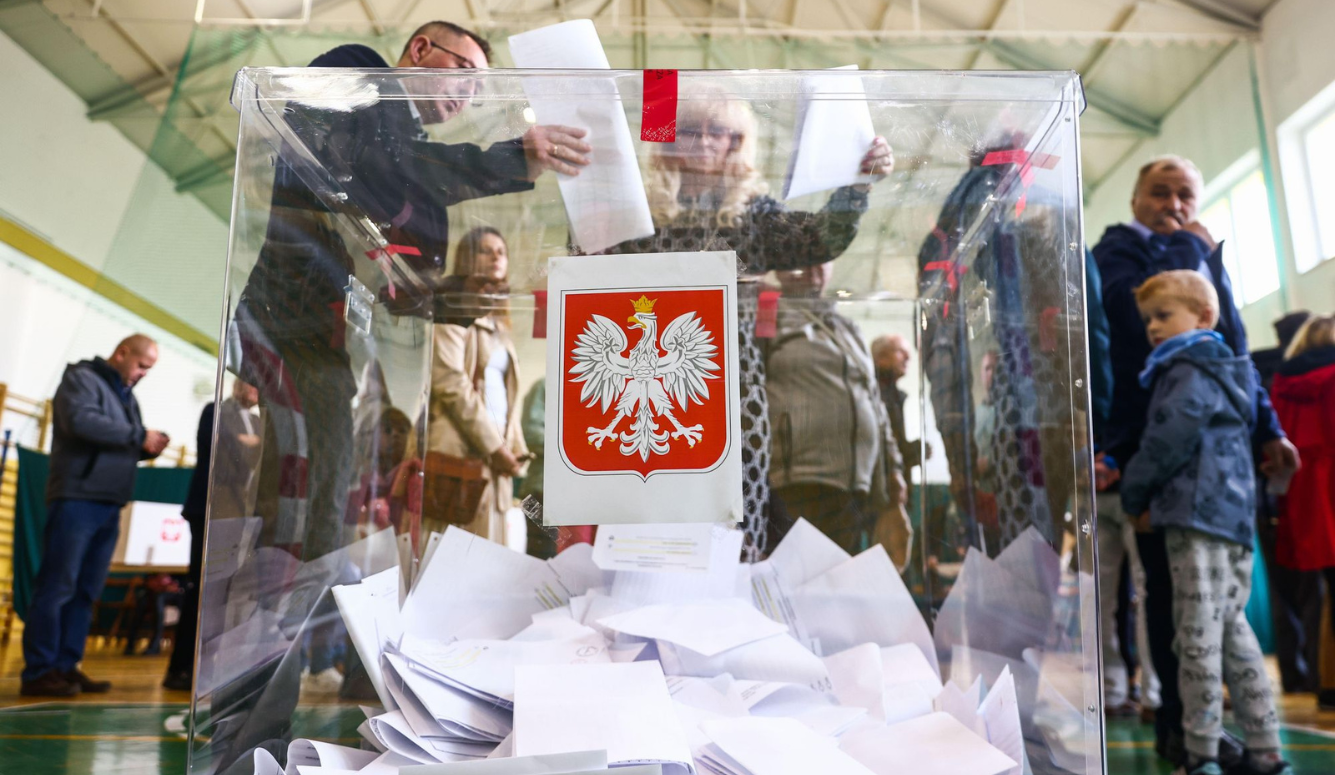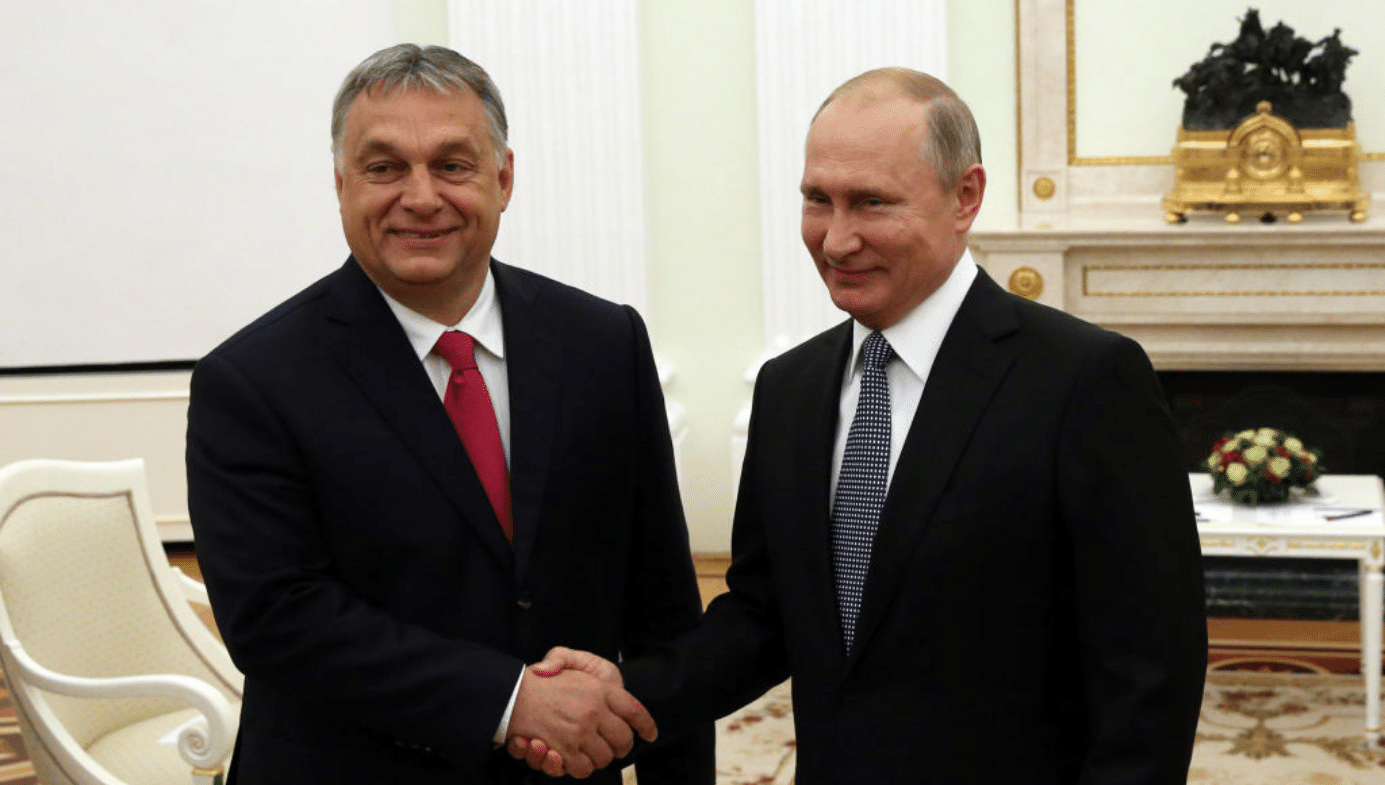Poland
What's Next for Poland?
The abuses must be tackled, yet the new government must choose its remedies with care.

As it celebrates its victory in the election held this past Sunday, 15 October, Poland’s opposition would do well to consider a cautionary tale from the United States.
In 2020, Joe Biden won the US presidency—albeit by narrow margins in six key states—mostly thanks to his promise to restore a sense of normalcy to US politics, following the rollercoaster of the Trump presidency. In office, however, Biden embraced an expansive understanding of his mandate, pushing through ambitious new spending programs and doubling down on a divisive culture war agenda.
Three years later, the temperature in US politics remains close to boiling point. Should current trends continue, Donald Trump seems on track to return to the White House in 2025.
Even though the center-right Civic Coalition, led by the former prime minister and president of the European Council, Donald Tusk, came second in the election, it will be able to form a coalition government with junior partners on the center-right (Third Way) and the center-left (New Left). Together, they must take seriously the task of defusing tensions in Polish politics, which became seriously unhinged during the run-up to the election.
During its last months in power, the country’s Law and Justice (PiS) party has engaged in several publicity stunts that are not only unseemly but could even endanger national security. For example, on 17 September, Defense Minister Mariusz Błaszczak casually released the country’s contingency plans for a Russian invasion, prepared by a predecessor (currently in opposition) in 2009. His only motivation was to score a tenuous political point. In revealing the fact that the government had made plans for a worst-case scenario, in which much of Poland was quickly overrun by Russian forces, Błaszczak sought to label the opposition as defeatists, or even traitors.
In the week before the election, two of Poland’s top generals—Chief of General Staff Gen Rajmund Andrzejczak and Operational Commander Gen Tomasz Piotrowski—resigned. Though the men gave no reason for this decision, it was widely believed to have been in protest at the creeping politicization of the armed forces.
The pattern is not new. Shortly after the 2015 election, the PiS government conducted a night-time raid of a NATO-affiliated counterintelligence center in Warsaw to remove its leadership, appointed under the previous government. Yet, as this year’s election approached, there was a heavy military presence in the streets of Poland on several occasions—officially, as part of state events, like Army Day, that celebrate the country’s growing military might, but unofficially the displays seemed to be part of the PiS political campaign. The line between government and military was getting blurred.
Meanwhile, public television channels have been broadcasting “documentaries” such as Their Man in Brussels—a fairly high-value production, which portrays Tusk as an agent of both Russian and German interests. Additionally, although inflation has been running at close to ten percent—four times the target set by the Polish National Bank (NBP)—the central bank decided to cut interest rates twice in the past two months, arguably to boost the prospects of the ruling Law and Justice (PiS) party.
PiS’s capture of state institutions such as courts and public broadcasting is real. Shortly after it assumed power in 2015, PiS introduced far-reaching changes to Poland’s courts, leading to a series of protracted, mostly unresolved stand-offs with European institutions, especially the European Court of Justice.
The Constitutional Tribunal, which has the power to review the country’s laws and interpret whether they are in alignment with the constitution, was the first institution to be targeted. The Tribunal—which had yet to be packed by loyalists—declared the legislative changes unconstitutional, but the government ignored the ruling. PiS also lowered the retirement age of judges and fired a significant portion of the judiciary, including a third of all Supreme Court justices. They also gave the justice minister sweeping powers to appoint and discipline lower court judges.
Poland’s public broadcasting had never enjoyed BBC or NPR levels of independence from direct political pressures—whether or not one thinks those broadcasters are impartial, they are certainly more independent than Polish mainstream media. But the past government went further than exerting pressure: the country’s public television service (TVP) was turned into an arm of the PiS, churning out political propaganda disguised as journalism.

These abuses must be tackled. Yet, the new government must choose its remedies with care. Almost 40 percent of Poles voted for PiS in the recent election. Its populism is not a result of TVP “disinformation” or some other pathology on Poland’s body politic to be cauterized—it is a reflection of where many Poles currently stand.
Those seeking an alternative path must therefore avoid fueling the dynamic, familiar from the United States, in which no tool of power—public or private—is considered off-limits in the effort to punish one’s political opponents or keep them from power.
There has been talk, for example, of cutting short the mandate of the central bank’s governor, Adam Glapiński, or of holding him otherwise accountable for his (undoubtedly politically motivated) decisions. Yet, doing so would not strengthen NBP’s independence any more than packing the US Supreme Court with liberal justices—however much Biden supporters might favor that—would help America’s democracy. On the contrary, overreach would only accelerate the cycle of gradual delegitimization of both the bank and the courts and incentivize the other side to violate even more democratic norms.
A similar logic applies to Poland’s foreign and European policies. Repairing relations with Berlin, Paris, and Brussels would be desirable, but it should not be an end in itself. Most importantly, such efforts should not come at the expense of a distinctly Polish set of priorities and interests, which serve as a vital counterweight to the Franco-German alliance.
In many areas, Poland should stay the course. The country has much to bring to the table: their commitment to Atlanticism is a much-needed corrective to pipe dreams of a common European foreign and defense policy; they view Ukraine’s European aspirations as urgent; they regard the excesses of the EU’s green agenda and its French-driven protectionism with suspicion. As one of the EU’s largest member states, Poland should have no qualms about standing up for its interests and being a regional leader, instead of being in such a rush to return to the good graces of Western European elites.
Whether that is the course of action that the new coalition, ostentatiously united around its embrace of the EU, will take is an open question. At a recent conference of foreign policy experts in Kraków, all of whom were critical of PiS, I witnessed a great deal of self-flagellation about the excesses of the ruling party on the part of the Polish participants, coupled with skepticism about the need for a distinctly Polish voice on the European stage.
Whilst many of those criticisms seem justified, a reflexive embrace of everything coming from Brussels, in a 180-degree reversal of PiS’ kneejerk Euroscepticism, is not likely to be a winning political proposition. Quite the contrary. The fact that the Civic Platform (who were then in government) embraced the European Commission’s relocation quotas for asylum seekers in 2015 probably cost them the election that same year, leading to 8 years of PiS hegemony.
The news from Poland is undeniably good. Over the past 8 years, the PiS government has stress-tested the country’s political institutions in myriad different ways. Poland’s democracy is now sporting a few bruises but, unlike its Hungarian equivalent, it remains strong—it has weathered the storm, just as America’s political institutions held up through Trump’s presidency and his disgraceful behavior in the wake of his defeat. But in both the US and Poland, what’s important is what happens next.

If the new government treat their political mandate as a blank check to rebuild Poland in the Western European progressive mold, they risk setting the stage for PiS to return, nastier and angrier than ever—just as Joe Biden’s fecklessness and overreach may soon pave the way for Trump to return to power in the United States.






